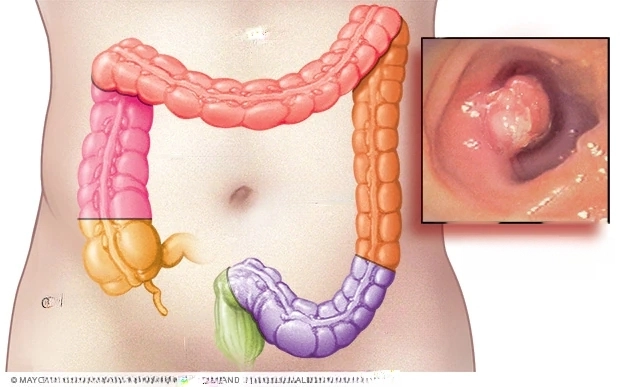“How to Prevent Anal Polyps: Key Lifestyle Changes”

can appear in the rectum or anus. While they are often benign, some types of anal polyps can lead to more serious conditions, including cancer. Fortunately, there are lifestyle changes you can adopt to reduce your risk of developing anal polyps. This blog will explore these lifestyle modifications in detail, helping you understand how to proactively prevent anal polyps.
Understanding Anal Polyps
Before diving into preventive measures, it’s essential to understand what anal polyps are and their potential risks. Anal polyps are small, non-cancerous growths that develop on the lining of the rectum or anus. They can vary in size and number and are often asymptomatic, meaning they may not present noticeable symptoms until they become larger or more problematic.
1. Adopt a High-Fiber Diet
A high-fiber diet is one of the most effective lifestyle changes to prevent anal polyps. Fiber aids in digestion and promotes regular bowel movements, which can help prevent constipation and reduce strain during bowel movements.
- Why Fiber Helps: Fiber helps keep stool soft and easier to pass, reducing the risk of irritation and inflammation in the anal area. A diet rich in fiber also supports overall digestive health.
- Sources of Fiber: Incorporate fruits, vegetables, whole grains, legumes, and nuts into your diet. Foods such as apples, carrots, beans, and whole grain bread are excellent fiber sources.
2. Stay Hydrated
Proper hydration is crucial for maintaining bowel health and preventing constipation, which can contribute to the formation of anal polyps.
- Importance of Hydration: Water helps soften stool, making it easier to pass and reducing the likelihood of straining. Staying well-hydrated also supports overall bodily functions.
- Hydration Tips: Aim to drink at least eight 8-ounce glasses of water daily. Adjust your intake based on physical activity, climate, and individual needs.
3. Exercise Regularly
Regular physical activity is beneficial for digestive health and can help prevent conditions that contribute to anal polyps.
- Benefits of Exercise: Exercise stimulates bowel movements, helps maintain a healthy weight, and reduces the risk of constipation. It also supports overall health and wellness.
- Recommended Activities: Engage in activities such as walking, jogging, cycling, or swimming for at least 30 minutes most days of the week. Incorporate strength training exercises to further support digestive health.
4. Maintain a Healthy Weight
Obesity and excess weight can increase the risk of developing anal polyps and other health issues. Maintaining a healthy weight is essential for overall well-being and can help reduce this risk.
- Connection Between Weight and Polyps: Excess weight can lead to changes in hormone levels and increase inflammation in the body, which may contribute to the development of anal polyps.
- Strategies for Weight Management: Combine a balanced diet with regular exercise to achieve and maintain a healthy weight. Consult with a healthcare provider or dietitian for personalized guidance.
5. Limit Alcohol and Avoid Tobacco
Both alcohol and tobacco use can negatively impact digestive health and increase the risk of various health conditions, including anal polyps.
- Impact of Alcohol and Tobacco: Alcohol can irritate the digestive tract and lead to inflammation, while tobacco use is associated with an increased risk of several cancers, including colorectal cancer.
- Recommended Limits: If you consume alcohol, do so in moderation—up to one drink per day for women and up to two drinks per day for men. Avoid tobacco in all forms to protect your overall health.
6. Regular Health Screenings
While not a lifestyle change per se, regular health screenings are an essential preventive measure. Early detection of any abnormalities can lead to timely intervention and treatment.
- Importance of Screenings: Regular screenings can help identify and address potential issues before they develop into more serious conditions.
- Recommended Screenings: Discuss with your healthcare provider when to start screening for colorectal issues based on your age, family history, and risk factors. Common screenings include colonoscopy and flexible sigmoidoscopy.
7. Manage Stress
Chronic stress can affect various aspects of health, including digestive function. Managing stress effectively can support overall well-being and help prevent conditions that may lead to anal polyps.
- Stress and Digestive Health: Stress can impact digestion and exacerbate gastrointestinal issues, potentially contributing to the formation of anal polyps.
- Stress Management Techniques: Incorporate relaxation techniques such as meditation, deep breathing exercises, and yoga into your routine. Regular physical activity and adequate sleep also contribute to stress reduction.
Conclusion
Preventing anal polyps involves a combination of dietary adjustments, lifestyle changes, and regular health screenings. By adopting a high-fiber diet, staying hydrated, exercising regularly, maintaining a healthy weight, limiting alcohol and tobacco, managing stress, and undergoing regular screenings, you can significantly reduce your risk of developing anal polyps and support overall digestive health.
Remember, while these lifestyle changes can help prevent anal polyps, it’s essential to consult with a healthcare provider for personalized advice and regular check-ups. Taking proactive steps towards a healthier lifestyle can make a significant difference in your overall well-being and help you avoid potential health issues in the future.




















